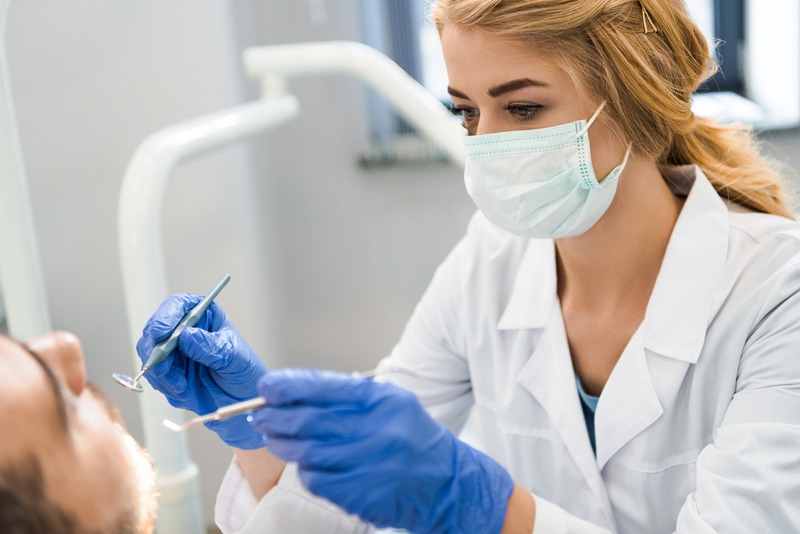Dental emergencies can occur at any time and often when you least expect them. The sudden onset of a toothache, a knocked-out tooth, or broken dental work can not only cause significant discomfort but may also lead to more serious health issues if not addressed promptly. Nevertheless, many dental emergencies can be avoided with preventive measures and a good understanding of oral care. Here are strategies to help keep your smile safe and minimize the risk of dental mishaps.
Regular Dental Check-Ups and Cleanings
Scheduling regular visits to a professional dentist is indispensable for maintaining oral health. These check-ups often reveal early signs of decay, gum disease, and other potential problems. Through routine examinations and cleanings, your dentist can help you prevent issues from escalating into emergencies. Moreover, professional cleanings remove plaque and tartar that can lead to cavities and infections, which are common culprits behind dental emergencies.
Proper Oral Hygiene at Home
Maintaining a daily routine of brushing and flossing is a cornerstone in avoiding dental issues:
-
Brush your teeth at least twice a day with fluoride toothpaste.
-
Floss daily to remove food particles and plaque between teeth that a toothbrush can’t reach.
-
Consider adding mouthwash to your routine for an extra layer of protection against bacteria.
Consistency in oral hygiene helps stave off gum disease, tooth decay, and the resulting emergencies that could arise from neglected dental care.
Wear Protective Gear for Sports
An unexpected injury during sports can result in chipped, broken, or lost teeth. Wearing a mouthguard when participating in any form of physical activity that might lead to a mouth injury is a smart way to protect your teeth. Custom-fitted mouthguards from a dentist offer the best protection and comfort.
Use Teeth Properly
Teeth are not tools. Using them to open bottles, cut tape, or perform similar tasks puts undue stress on your dental structure and can cause chips or fractures. To prevent an emergency, always use the right tool for the job and save your teeth for what they are meant for—eating and smiling.
Refrain from Chewing Hard Objects
Chewing on hard objects such as ice, popcorn kernels, or hard candy can lead to cracked or broken teeth. Avoid putting undue pressure on your teeth by steering clear of these habits. Teeth that are already weakened by decay or fillings are especially at risk.
Healthy Diet for Strong Teeth
What you eat also plays a critical role in dental health:
-
Eating a balanced diet ensures you receive the nutrients necessary for healthy teeth and gums.
-
Limits sugary and acidic foods that contribute to tooth decay.
-
Stay hydrated with water to help wash away food particles and bacteria.
Good nutrition lays a foundation for strong teeth and gums, thus reducing the risk of emergencies.
Address Bruxism
Bruxism, the habit of grinding or clenching teeth, especially while sleeping, can lead to tooth fractures and other dental injuries. If you experience soreness in your jaw, headaches, or notice your teeth wearing down, talk to your dentist about possible treatments like a custom nightguard to prevent future dental emergencies.
Protective Measures for Sleep Apnea
Sleep apnea not only disrupts sleep, but it can also lead to dental issues due to the strain it places on the teeth and jaw. Explore the options to treat sleep apnea in Milford and reduce the risk of related dental emergencies.
Smart Dental Habits for Children
Instilling good dental habits in children is critical for setting the foundation for a healthy mouth throughout their lives. Demonstrate proper brushing and flossing techniques, and make dental care a part of their daily routine. For children active in sports, ensure they wear appropriate protective gear, including a mouthguard.
Immediate Action for Dental Emergencies
While prevention is key, knowing how to act in the event of a dental emergency is equally important. Maintain a dental first aid kit, and educate yourself on the immediate steps to take for common scenarios, such as a knocked-out tooth. When in doubt, seek prompt advice and treatment from a professional.
Finding Comprehensive Dental Care
No single action can guarantee you’ll avoid all dental emergencies, but a comprehensive approach that combines good oral hygiene practices, protective measures, regular dental visits, and smart choices can greatly reduce your risk. To ensure you have access to all the necessary resources for maintaining dental health, find all your dental needs at Shoreline Dental Care, which may include a skilled team of professionals, a wide range of services, and personalized care plans.
Closing Remarks
In conclusion, taking proactive measures to protect your oral health is key to preventing common dental emergencies. Regular dental visits, proper hygiene practices, protective gear, and a healthy lifestyle are all instrumental in maintaining a healthy smile. And in cases where prevention isn’t enough, knowing where to seek care can make all the difference. Be prepared, stay informed, and prioritize your oral health to keep those dental emergencies at bay.

